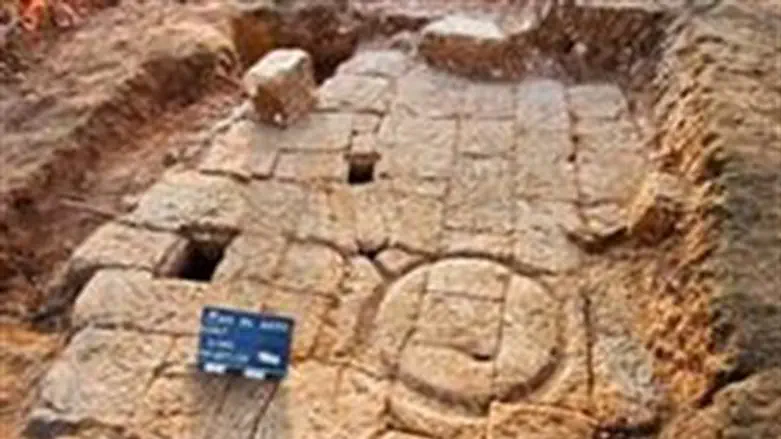
The Israel Antiquities Authority (IAA) has discovered an industrial olive press from the Byzantine-Muslim era (6th – 8th century CE). The site was found near Hod HaSharon in the course of IAA digs conducted in preparation for the paving of a new road.
Excavation team leader Durar Masarwa said: "We discovered the surface on which olive oil was extracted as well as a network of pipes, canals and holes that drained the liquid oil."
According to Amit Re'em, Central District Archeologist at the IAA, "we were surprised to discover that the olive press system had been carved into huge building slabs that were sunk into the ground."
"This is a rare type of olive press, because usually olive presses were made directly on the bedrock. It seems that, because the soil in the Hod HaSharon area is soft hamra ground, and the building had to have a solid base, they took an unusual step and brought hewn rock and heavy stone sheeting upon which they built the olive press. We are still trying to locate similar olive presses in Israel."
An IAA expert said that the size of the press indicates it was intended for commercial use.
The Hod Hasharon municipality is looking into paving the new road around the site in a way that will make it possible to establish a small archeological park at the location.
